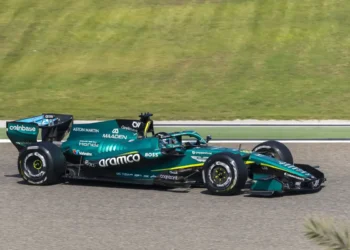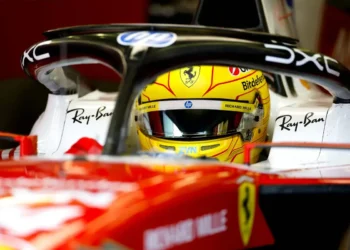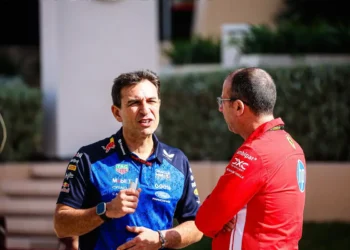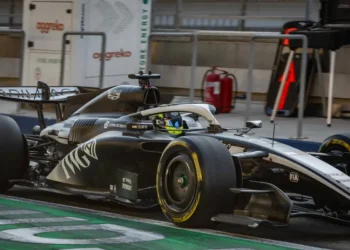In a groundbreaking move that could reshape the landscape of Formula 1, the Formula 1 Commission has greenlit a bold plan to allow struggling manufacturers to catch up in the upcoming season if their new engines fall short in performance. However, the proposed alteration to reduce battery power during races has sparked intense debate among stakeholders, with opinions sharply divided.
During a recent meeting in Geneva, top officials from F1, the FIA, and team representatives delved into discussions surrounding the future of the sport, with a particular focus on the challenges and opportunities presented by the 2026 season. The primary objective is to prevent one manufacturer from gaining an overwhelming advantage, which could lead to a significant performance gap on the grid.
The proposal to potentially adjust the power unit regulations to ensure a more level playing field has gained traction, with suggestions including granting struggling teams additional engine dyno hours and flexibility within the cost cap for further development. However, it was emphasized that any concessions for catching up would be reserved exclusively for lagging engines and not extended to teams facing setbacks in car development.
A contentious issue that emerged from the meeting is the proposition to shift away from the current 50-50 power split between the combustion engine and battery power during races, with a view to limiting cars to 200kw of battery power instead of the full 350kw. While some manufacturers support this idea as a means to address energy deployment concerns, others, notably Mercedes’ Toto Wolff, vehemently oppose making significant regulatory changes at this stage.
The FIA confirmed that discussions on refining the energy management strategy for 2026 and addressing financial challenges faced by power unit manufacturers will continue within the relevant advisory committees. Additionally, a proposal to modify the skid block material on cars for select races to mitigate grass fire risks following incidents in previous Grand Prix events was put forward for further evaluation.
Amidst the deliberations, updates to parc ferme allowances for driver cooling vests and the implementation of a regulatory mechanism to manage freight delays during flyaway events were also on the agenda. The FIA pledged to explore alternative solutions to the skid block issue and other track safety concerns as the sport gears up for an era of transformation in the coming seasons.










